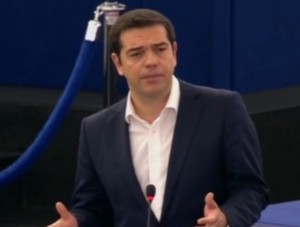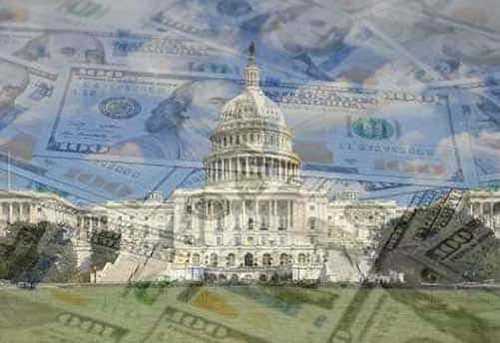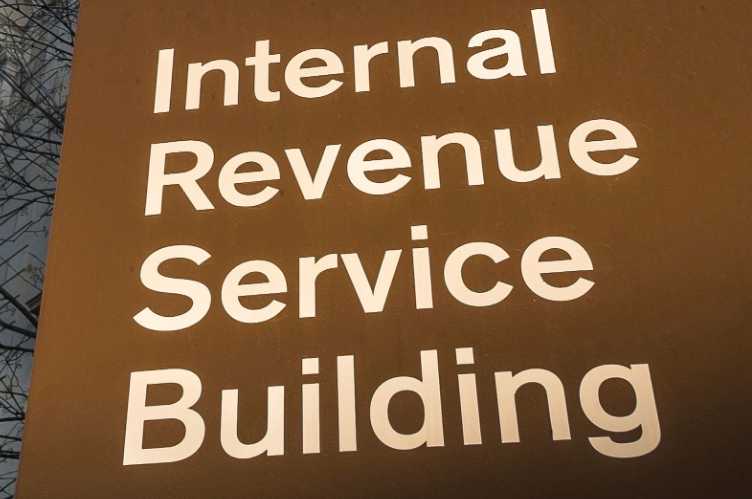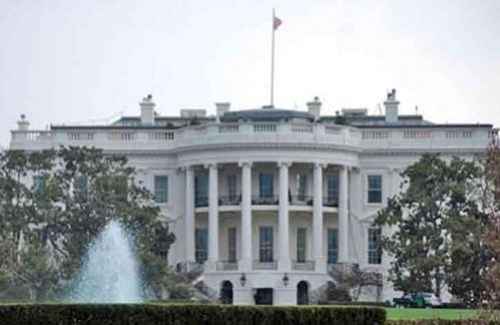
Debt-wracked Greece asked its European neighbors for a new three-year bailout Wednesday, pledging to “immediately implement” tax and pension reforms.
Greek Prime Minister Alexis Tsipras told the European Parliament in Strasbourg that Athens would produce “new concrete proposals” by Thursday to meet the demands of European leaders who’ve grown weary of Greece’s debt crisis.
With his country’s banks near collapse and running out of cash, Tsipras said he is confident of meeting an end-of-the-week “final deadline” European leaders have given him to reach a bailout deal.
Tsipras also defended his country’s reluctance to agree to new austerity measures in exchange for more financial aid, saying five years of austerity imposed on it by the country’s international lenders proved to be a failure.
“I think all of us have to accept that this experiment has not been a success,” he said. “Over these five years, we have seen a skyrocketing of poverty, unemployment has soared, social marginalization has increased, as has the public debt, which is now 180 percent of the GDP.”
Last-chance summit
The EU leaders called a new summit for Sunday, telling Greece there would be a decision then on a new Greek bailout or Athens would likely exit the 19-nation euro currency bloc if no agreement could be reached.
“Until now I have avoided talking about deadlines,” said European Council President Donald Tusk, “but tonight I have to say loud and clear that the final deadline ends this week.”
In his speech to the European Parliament, the Greek leader was greeted by both boos and cheers. He said any reforms must share burdens among the population, create jobs and encourage entrepreneurship.
Preparing for possible Grexit
Despite European complaints about the more than $300 billion in bailouts Greece has amassed over the last five years, EU Economics Affairs Commissioner Pierre Moscovici said he believes a deal can be reached by Sunday.
In a sign of just how dire the situation has become, European leaders have begun making preparations for Greece to leave the eurozone, which would make it the first to leave the currency bloc in its 16-year history.
“The commission is prepared for everything. We have a Grexit scenario, prepared in detail,” said European Commission President Jean-Claude Juncker.
Greece’s international lenders have become increasingly frustrated at Prime Minister Tsipras, who failed Tuesday to even present a written proposal for a new rescue plan.
The White House said U.S. President Barack Obama spoke to Tsipras by telephone Tuesday. Obama repeated his belief that it is in everyone’s interest for Greece and its creditors to reach a mutually acceptable deal.
IMF default
Greece defaulted on its $1.8 billion loan payment to the International Monetary Fund last week when European finance ministers refused to extend its bailout that would have allowed Greece to pay the IMF.
Greece said it has suffered enough with spending cuts, tax hikes and other tough conditions that the EU has imposed in exchange for a bailout.
Greek voters rejected more austerity in a referendum earlier this week. While some Greeks say it is essential for the country to remain a part of Europe economically, “no” voters accused the EU creditors of humiliating and enslaving them.
Meanwhile, many Greek banks are closed and withdrawals at cash machines are limited to just $67 a day. Store shelves are rapidly emptying and gas stations drying up with no one knowing exactly what is going to happen next.
If Greece and the EU cannot come to terms, Greece could be forced out of the eurozone and return to its old currency, the drachma — money that some outside Greece could refuse to accept.
Greece’s economic troubles began in earnest in 2009 when it was revealed that the old conservative government badly underreported the country’s debt. The revelations came during the same time the global recession began to worsen.
Greece was forced to turn to European and international leaders for a bailout to prevent bankruptcy.







